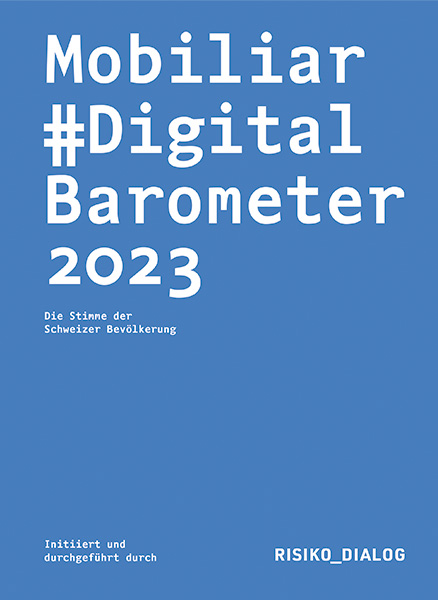Making society aware of the challenges and opportunities posed by technological innovations and environmental changes, enabling it to handle them and develop solutions: the Risk Dialogue Foundation has been pursuing these goals for more than 30 years.
t’s the mid-1980s, when the catastrophic incidents at Chernobyl and Schweizerhalle took place. During the same period, German sociologist Ulrich Beck released his much-discussed book Risikogesellschaft, in which he discussed the risks that go hand-in-hand with technological progress. Matthias Haller, then professor of risk management and insurance at the University of St. Gallen, did not want to simply leave this discussion to the experts in the field. In his view, effective risk management requires society at large to be able to contribute. He subsequently founded the non-profit Risk Dialogue Foundation in 1989. To date, this Zurich-based organisation has worked closely with partners in research, business, public administration and politics, and with private individuals.
In its early days, the foundation looked primarily at the risks posed by the nuclear and chemical industries, gene technology and mobile communications. Now, it focuses on three areas of activity: climate and energy, risk competence and resilience culture, and digitalisation and society. Despite this, the goals of the foundation have not changed, says its managing director Matthias Holenstein: ‘We want to do our bit, so society is familiar with the current risks and challenges and learns to handle them.’ Thus, the foundation not only wants to name problems, but to offer a platform on which to jointly develop solutions and shape the future.

Digitisation impacts every area of life

Digitalisation and society has been an area of focus within the foundation since 2018, explains project manager Anna-Lena Köng: ‘The changes arising from digitalisation are increasingly having an impact on every area of life – and we, as a society, need to get to grips with this.’ The foundation receives financial support from insurance company Mobiliar to build up this field of activity, and in particular for implementation of the DigitalBarometer. Otherwise, it finances itself through projects executed in collaboration with partners.
The DigitalBarometer has been published annually since 2019. ‘For us, it’s a crucial gauge for understanding where the population sees risks and opportunities in digitisation, where and how they would like to get involved and to whom they assign responsibility,’ says Köng. Three core topics have come to the fore over time: digital data, the digital opinion-forming process and the future of work. In turn, they have given rise to tangible projects, such as Digital Literacy. This simulation enables participants to learn how to recognise and scrutinise the impact that false information in the digital space has on the formation of their opinions. Handling personal data is the focus of a project to donate data to non-profit organisations, which the foundation tested out for the first time with the University of Zurich. As part of the pandemic-related measures, students voluntarily provided the university’s crisis department and researchers with relevant personal data, such as their vaccination status or mental health information. 1800 students and employees at the University of Zurich donated their data. ‘Communications support played a key role in reaching this high rate of participation,’ says Holenstein. In his view, this example shows that people are willing to give up their data for a higher purposes – as long as it is voluntary and can be revoked at any point. In addition, he says, the Swiss population has a generally high level of trust in non-profit organisations and the authorities.
Looking to the future
Artificial intelligence, the collaboration between humans and robots in the world of work and the impact of digitalisation on mental health are among the topics that will have a substantial impact on the population in the future, according to Köng. She explains that the foundation will review the type of projects it can implement in order to support the population in the digital transformation. Holenstein: ‘We notice growing numbers of synergies between the foundation’s three fields of activity.’ In his eyes, this is a reflection of reality: ‘After all, we are all affected by both climate change and the digital transformation, and need to develop a culture of resilience.’

Every year, the DigitalBarometer shows where the people of Switzerland stand on the subject of digitalisation.


